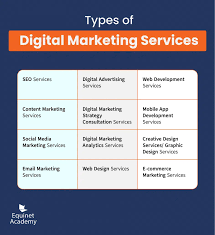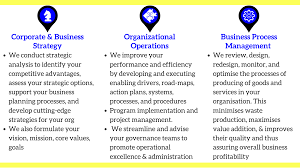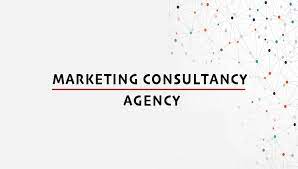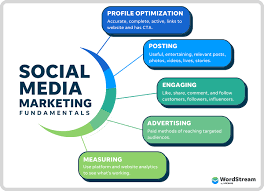Consulting: Unlocking the Power of Expertise and Collaboration
In today’s rapidly changing business landscape, organizations face numerous challenges that require strategic thinking, innovative solutions, and a deep understanding of their industry. This is where consulting comes into play. Consulting firms have emerged as trusted partners for businesses seeking expert advice and guidance to navigate complex issues and drive growth.
At its core, consulting is about providing specialized knowledge, skills, and experience to help clients tackle their most pressing problems. Whether it’s improving operational efficiency, developing effective marketing strategies, implementing technological advancements, or managing organizational change, consultants bring a fresh perspective and valuable insights to the table.
One of the key benefits of consulting lies in the external perspective it offers. Consultants bring an objective viewpoint untainted by internal biases or preconceived notions. They can identify blind spots, uncover hidden opportunities, and challenge conventional thinking within an organization. This outside-in approach allows businesses to gain a deeper understanding of their market dynamics and make informed decisions that lead to sustainable success.
Moreover, consultants possess a wealth of industry knowledge gained from working with various clients across different sectors. This broad exposure equips them with a unique vantage point and enables them to identify best practices from diverse industries that can be adapted to suit specific business needs. By leveraging this expertise, consultants can offer tailored solutions that align with the client’s goals and objectives.
Collaboration is another fundamental aspect of consulting. Effective consultants work closely with their clients as partners rather than mere service providers. They invest time in understanding the client’s business context, culture, values, and aspirations. This collaborative approach fosters trust and ensures that recommendations are not only technically sound but also practical and feasible within the client’s organizational context.
Consulting engagements typically involve a structured process that includes problem identification, data analysis, solution development, implementation planning, and ongoing support. Consultants employ proven methodologies and frameworks to guide their clients through each stage of this process, ensuring a systematic and results-oriented approach.
Furthermore, consulting firms often have access to extensive networks and resources that can be leveraged to address specific client needs. These networks may include industry experts, thought leaders, and other professionals who can contribute valuable insights and support the consulting engagement. This access to a wide range of expertise enhances the value proposition of consulting services and enables consultants to deliver comprehensive solutions.
In conclusion, consulting has become an integral part of modern business strategy. It offers organizations the opportunity to tap into specialized knowledge, gain fresh perspectives, and collaborate with experienced professionals. By engaging consultants, businesses can overcome challenges, seize opportunities, and achieve their goals in an increasingly competitive marketplace. Whether it’s driving growth, improving operational efficiency, or managing change, consulting unlocks the power of expertise and collaboration to propel businesses forward.
9 Advantages of Consulting: Unlocking the Potential for Business Growth and Innovation
- Access to the latest industry knowledge and expertise.
- Opportunity to focus on specific areas of business improvement and development.
- Cost-effective way of accessing external advice and guidance.
- A fresh perspective from an outside source can be invaluable in identifying new solutions or approaches to existing problems.
- An experienced consultant can help identify potential risks that may not have been obvious internally, allowing for proactive risk management strategies to be implemented quickly and effectively.
- Increased efficiency as a result of improved processes, leading to cost savings over time for the organisation or business unit being consulted upon/for.
- Ability to tap into a network of contacts with specialist skillsets that would otherwise be unavailable in-house, thus providing access to a wider range of resources than could ordinarily be accessed by an individual or organisation alone..
- Improved morale through increased staff engagement as a result of implementing change initiatives identified by the consultant’s analysis and recommendations..
- Increased capacity for innovation due to access to new ideas from external sources which may have previously been overlooked by internal personnel
Drawbacks of Consulting: Exploring the Expensive, Time-consuming, Lack of Continuity, Conflict of Interest, and Dependency Aspects
- Expensive – Consulting services can be expensive, particularly for smaller organisations with limited budgets.
- Time-consuming – Consultants may require a significant amount of time to assess the situation and develop solutions, which could divert resources away from other tasks.
- Lack of continuity – Consultants often move between projects, meaning that they may not have the same level of knowledge and understanding as an in-house team who are more familiar with the business’s operations and culture.
- Conflict of interest – There is always a risk that consultants will prioritise their own interests over those of their clients when making decisions or recommendations.
- Dependency on consultant – If an organisation becomes overly reliant on external consultants, it can weaken its capacity to innovate and problem-solve independently in the future.
Access to the latest industry knowledge and expertise.
Access to the Latest Industry Knowledge and Expertise: Empowering Businesses through Consulting
In today’s fast-paced and ever-evolving business world, staying ahead of the competition requires a deep understanding of industry trends, emerging technologies, and best practices. However, keeping up with the rapid pace of change can be challenging for many organizations. This is where consulting proves to be an invaluable asset, offering businesses access to the latest industry knowledge and expertise.
One of the significant advantages of engaging consultants is their ability to provide up-to-date insights into industry trends and developments. Consultants are immersed in their respective fields, constantly monitoring market dynamics, technological advancements, and regulatory changes. They possess a wealth of knowledge gained from working with diverse clients across various sectors.
Consultants stay abreast of industry news, attend conferences and seminars, and actively engage in continuous learning. This commitment to staying informed allows them to offer clients a competitive edge by providing them with the most current information relevant to their specific industry.
By tapping into consultants’ expertise, businesses gain access to specialized knowledge that may not be readily available within their own organization. Consultants bring a fresh perspective based on their experiences working with different clients facing similar challenges. Their exposure to various industries enables them to identify best practices that can be adapted and applied effectively in different contexts.
Moreover, consultants possess deep subject matter expertise in specific domains. Whether it’s marketing strategy, supply chain management, financial analysis or technology implementation, they have honed their skills through years of experience working on similar projects. This expertise allows them to provide valuable insights and recommendations tailored specifically to address a client’s unique needs.
Consulting engagements often involve collaborative problem-solving sessions where consultants work closely with clients’ teams. Through this collaboration, consultants transfer their knowledge and expertise to internal staff members who can then apply these learnings long after the consulting engagement has ended. This knowledge transfer empowers businesses by building internal capabilities and ensuring sustainable growth.
Additionally, consultants have access to extensive networks within their industries. These networks can include thought leaders, industry experts, and other professionals who can contribute valuable insights and support. By leveraging these connections, consultants can bring in additional expertise when needed, ensuring that clients receive the most comprehensive and well-rounded advice.
In conclusion, access to the latest industry knowledge and expertise is a significant benefit that consulting offers to businesses. Consultants provide a fresh perspective, specialized knowledge, and insights gained from working across diverse sectors. They keep up with industry trends, technological advancements, and best practices, empowering businesses to make informed decisions and stay ahead of the competition. By engaging consultants, organizations gain access to a wealth of expertise that can drive innovation, improve performance, and foster long-term success in today’s dynamic business environment.
Opportunity to focus on specific areas of business improvement and development.
Unlocking Business Potential: The Power of Consulting
In the fast-paced world of business, organizations often find themselves juggling multiple priorities and challenges. Amidst this complexity, one of the key advantages of consulting emerges: the opportunity to focus on specific areas of business improvement and development.
Consulting allows businesses to tap into the expertise of professionals who specialize in specific domains. Whether it’s streamlining operations, enhancing marketing strategies, optimizing supply chains, or improving customer experience, consultants bring a laser-like focus to these areas. By honing in on specific challenges or opportunities, consultants can provide tailored solutions that drive tangible results.
One of the primary benefits of this focused approach is efficiency. Instead of spreading resources thin across various aspects of the business, consulting enables organizations to allocate their time and efforts where they are most needed. By doing so, businesses can achieve quicker results and make significant strides towards their goals.
Moreover, consultants possess a deep understanding of industry best practices and emerging trends within their specialized area. They stay abreast of developments, conduct thorough research, and bring a wealth of knowledge from working with diverse clients. This expertise allows them to identify innovative solutions that may not be readily apparent to internal teams.
Consultants also offer an external perspective that can be invaluable for organizations seeking fresh insights. Being immersed within a company’s day-to-day operations can sometimes limit one’s ability to see beyond existing processes or biases. Consultants bring an objective viewpoint and challenge conventional thinking, encouraging businesses to explore new approaches and seize untapped opportunities.
Another advantage is the ability to leverage proven methodologies and frameworks employed by consultants. These frameworks provide structure and guidance throughout the consulting engagement, ensuring a systematic approach towards achieving desired outcomes. By following established processes tailored to specific areas of improvement, businesses can navigate complex challenges with greater confidence.
Furthermore, engaging consultants allows internal teams to focus on their core competencies while leaving specialized tasks in capable hands. This not only improves overall efficiency but also fosters a sense of empowerment among employees. By entrusting specific areas to experts, organizations can leverage their internal talent to focus on what they do best, leading to higher productivity and job satisfaction.
In conclusion, the opportunity to focus on specific areas of business improvement and development is a significant pro of consulting. By partnering with consultants who specialize in targeted domains, organizations can achieve efficiency, gain fresh insights, and leverage proven methodologies. With their expertise and external perspective, consultants enable businesses to unlock their full potential and drive sustainable growth in an increasingly competitive landscape.
Cost-effective way of accessing external advice and guidance.
Cost-effective way of accessing external advice and guidance through consulting
In today’s fast-paced business environment, organizations often face complex challenges that require expert insights and guidance. However, hiring full-time specialists or building an in-house team to address every specific issue can be costly and impractical. This is where consulting emerges as a cost-effective solution, offering businesses the opportunity to access external advice and expertise without breaking the bank.
Consulting provides a flexible approach to obtaining specialized knowledge and skills on-demand. Instead of investing in permanent staff members or extensive training programs, businesses can engage consultants for specific projects or periods of time. This allows organizations to tap into external expertise whenever needed, making it a more efficient allocation of resources.
By leveraging the services of consultants, businesses can benefit from a diverse range of experiences gained from working with various clients across different industries. Consultants bring fresh perspectives and innovative ideas that may not have been previously considered within the organization. This external viewpoint can help identify blind spots, uncover new opportunities, and challenge the status quo, all at a fraction of the cost compared to maintaining an internal team.
Moreover, consultants are highly skilled professionals who specialize in providing solutions to specific problems. They possess in-depth knowledge and experience in their respective fields, allowing them to deliver targeted advice tailored to the client’s needs. This focused expertise ensures that businesses receive practical recommendations that are directly applicable to their unique circumstances.
Another cost-saving aspect of consulting is the ability to scale resources as required. Organizations can engage consultants for short-term projects or during peak periods without committing to long-term contracts or overhead expenses. This flexibility allows businesses to adapt quickly to changing demands while maintaining control over their budget.
Additionally, consultants often bring with them established methodologies, frameworks, and tools honed through years of experience. These resources enable consultants to work efficiently and effectively on client engagements, saving time and effort for both parties involved. By leveraging these proven approaches, businesses can achieve desired outcomes more swiftly and with reduced trial and error.
Lastly, consulting engagements typically operate on a project basis, which means that clients only pay for the specific services and deliverables required. This cost structure provides transparency and allows businesses to have a clear understanding of the financial implications upfront. It also enables organizations to allocate their resources strategically, focusing on areas that will yield the highest return on investment.
In conclusion, consulting offers a cost-effective way for businesses to access external advice and guidance. By engaging consultants, organizations can tap into specialized expertise without the burden of maintaining a full-time team. This flexible approach allows businesses to benefit from fresh perspectives, targeted solutions, scalability, established methodologies, and transparent cost structures. With consulting as a valuable resource, organizations can navigate challenges efficiently while optimizing their budget allocation for sustainable growth and success.
A fresh perspective from an outside source can be invaluable in identifying new solutions or approaches to existing problems.
A Fresh Perspective: The Invaluable Pro of Consulting
In the ever-evolving business landscape, organizations often find themselves grappling with complex problems that require innovative solutions. This is where consulting proves to be an invaluable asset. One of the key advantages of engaging consultants is their ability to provide a fresh perspective from an outside source, which can unlock new approaches to existing problems.
When businesses operate internally, it’s natural for biases and preconceived notions to influence decision-making processes. Over time, this can create blind spots and hinder progress. However, by bringing in consultants who possess a different vantage point, organizations gain access to unbiased insights that challenge conventional thinking.
Consultants have the advantage of working with various clients across different industries and sectors. This exposure equips them with a wealth of knowledge and experience that can be leveraged to identify best practices and innovative ideas from diverse sources. By drawing upon this breadth of expertise, consultants can offer unique perspectives on existing problems, opening doors to novel solutions that may not have been considered internally.
Moreover, consultants are skilled at asking thought-provoking questions that encourage critical thinking within an organization. By challenging assumptions and encouraging exploration of alternative options, they help break free from traditional patterns of problem-solving. This fresh perspective stimulates creativity and fosters an environment where new ideas thrive.
An outside perspective also brings objectivity into play. Consultants are not bound by internal politics or personal agendas that may cloud judgment within an organization. They approach problems with a neutral mindset, focusing solely on what is best for the client’s success. This objectivity allows them to evaluate situations objectively, identify root causes accurately, and propose effective solutions without being influenced by internal biases.
Furthermore, consultants possess a deep understanding of industry trends and emerging technologies. They stay up-to-date with the latest developments in their field and bring this knowledge into consulting engagements. By combining their expertise with a fresh perspective, they can spot opportunities or potential risks that may have been overlooked internally. This proactive approach ensures that organizations remain competitive and adaptable in a rapidly changing business environment.
In conclusion, the fresh perspective provided by consultants is a valuable pro of engaging their services. By bringing an outside source of expertise into the equation, businesses can tap into unbiased insights, innovative ideas, and alternative approaches to existing problems. This perspective challenges the status quo, stimulates creativity, and helps organizations stay ahead of the curve. Consulting truly unlocks new solutions and paves the way for continued growth and success.
An experienced consultant can help identify potential risks that may not have been obvious internally, allowing for proactive risk management strategies to be implemented quickly and effectively.
Proactive Risk Management: The Value of Experienced Consultants
In today’s dynamic business environment, organizations face a multitude of risks that can significantly impact their operations and bottom line. Identifying and mitigating these risks is crucial for maintaining stability and ensuring long-term success. This is where the expertise of experienced consultants proves invaluable.
One of the key advantages of engaging a consultant is their ability to identify potential risks that may not be immediately apparent internally. These risks can stem from various sources such as market volatility, regulatory changes, technological advancements, or even internal processes. With their extensive industry knowledge and diverse client experience, consultants possess a keen eye for spotting these hidden risks.
By conducting thorough assessments and analysis, consultants can help businesses uncover vulnerabilities that may have gone unnoticed. They bring an objective perspective to the table, free from internal biases or assumptions. This fresh viewpoint allows them to identify risk factors that internal teams may have overlooked or underestimated.
Once these risks are identified, experienced consultants can swiftly develop proactive risk management strategies tailored to the specific needs of the organization. They leverage their expertise to design comprehensive plans that address each identified risk effectively. These strategies encompass proactive measures aimed at preventing potential issues before they arise or mitigating their impact if they do occur.
Moreover, consultants have access to a wide range of tools and methodologies specifically designed for risk management purposes. They employ data-driven approaches combined with industry best practices to develop robust risk mitigation plans. By leveraging these resources, consultants ensure that organizations are equipped with the most effective strategies to handle potential risks.
Implementing proactive risk management strategies quickly and effectively is essential in today’s fast-paced business landscape. By engaging experienced consultants early on, organizations gain a competitive advantage by staying ahead of potential threats. Consultants work closely with their clients to ensure that risk management plans are aligned with the organization’s goals and objectives.
Furthermore, consultants provide ongoing support throughout the implementation phase of risk management strategies. They assist in monitoring and evaluating the effectiveness of these measures, making adjustments as necessary. This continuous support ensures that organizations remain proactive in managing risks and can adapt swiftly to any changes in the business environment.
In conclusion, the expertise of experienced consultants in identifying potential risks and designing proactive risk management strategies is a significant benefit for organizations. Their objective perspective, industry knowledge, and access to specialized tools enable them to uncover hidden risks and develop tailored plans to mitigate them effectively. By engaging consultants, businesses can proactively manage potential threats, safeguard their operations, and position themselves for long-term success in an ever-changing business landscape.
Increased efficiency as a result of improved processes, leading to cost savings over time for the organisation or business unit being consulted upon/for.
Unlocking Efficiency: How Consulting Drives Cost Savings through Process Improvement
In the fast-paced world of business, efficiency is a key driver of success. Organizations constantly strive to optimize their processes, eliminate waste, and streamline operations to stay competitive. This is where consulting plays a crucial role by bringing in expert knowledge and experience to identify areas for improvement and drive cost savings.
One significant advantage of consulting is its ability to enhance efficiency by improving processes within an organization or business unit. Consultants specialize in analyzing existing workflows, identifying bottlenecks, and implementing strategies to streamline operations. By conducting thorough assessments and leveraging their expertise, consultants can pinpoint inefficiencies that may have gone unnoticed internally.
Process improvement initiatives undertaken by consultants often involve reengineering workflows, eliminating redundant steps, and introducing automation or technology solutions where applicable. These interventions lead to smoother operations, reduced manual effort, and enhanced productivity. As a result, organizations can achieve higher output levels with the same or fewer resources.
The benefits of improved processes extend beyond increased productivity. They also contribute to significant cost savings over time. By eliminating unnecessary steps or redundancies in workflows, organizations can reduce waste and allocate resources more efficiently. This leads to lower operational costs, improved resource utilization, and ultimately, enhanced profitability.
Consulting engagements typically involve a comprehensive analysis of existing processes through data collection, interviews with stakeholders, and benchmarking against industry best practices. Based on this assessment, consultants develop tailored recommendations that align with the organization’s goals and objectives. These recommendations may include changes in operational procedures, adoption of new technologies or systems integration for better workflow management.
Implementing these recommendations requires collaboration between consultants and internal teams within the organization or business unit being consulted upon/for. Consultants provide guidance throughout the implementation process to ensure smooth transitions and monitor progress towards achieving desired outcomes.
The long-term impact of process improvement initiatives facilitated by consulting can be transformative for businesses. As organizations become more efficient over time, they are better equipped to adapt to changing market conditions, scale their operations, and seize new opportunities. The cost savings achieved through improved processes can be reinvested in other areas of the business, such as innovation, research and development, or talent acquisition.
In conclusion, consulting offers a valuable proposition for organizations seeking to enhance efficiency and drive cost savings. By leveraging the expertise of consultants, businesses can identify process inefficiencies, implement targeted improvements, and achieve long-term cost reductions. This not only improves the bottom line but also positions organizations for sustainable growth in an increasingly competitive marketplace. Embracing consulting as a strategic partner in process improvement initiatives is a wise investment that yields significant returns over time.
The Power of Networks: Consulting’s Gateway to Specialist Skillsets
In today’s interconnected world, the ability to tap into a vast network of contacts with specialist skillsets has become a game-changer for businesses. This is where consulting shines, providing access to a wider range of resources than could ordinarily be accessed by an individual or organization alone.
One of the key advantages of consulting lies in the extensive networks that consultants have cultivated over time. These networks comprise professionals with diverse backgrounds and expertise, ranging from industry veterans to niche specialists. By leveraging these connections, consultants can quickly identify and engage the right individuals or teams who possess the specific skills required for a particular project or challenge.
For many businesses, hiring full-time employees with every conceivable skillset is neither practical nor cost-effective. However, through consulting, organizations gain access to a pool of talented professionals who can provide targeted support on-demand. This flexibility allows businesses to tap into specialized skillsets as and when needed, without incurring long-term overheads.
Furthermore, these networks often extend beyond geographical boundaries, enabling consultants to connect clients with experts from different parts of the world. This global reach opens up opportunities for cross-cultural collaboration and knowledge exchange, bringing fresh perspectives and innovative solutions to the table.
Consulting also offers an avenue for organizations to bridge gaps in their internal capabilities. Sometimes, businesses may require specific expertise that is not readily available within their own teams. In such cases, consultants act as catalysts by connecting clients with external specialists who possess the required knowledge and experience. This collaborative approach ensures that projects are executed efficiently and effectively while leveraging the best available talent.
Moreover, by accessing a wider range of resources through consulting networks, organizations can tackle complex problems that would otherwise be challenging to address internally. Consultants bring together multidisciplinary teams comprising experts from various domains who work collectively towards finding comprehensive solutions. This collaborative synergy enhances problem-solving capabilities and leads to more robust outcomes.
The ability to tap into a network of contacts with specialist skillsets also brings added value in terms of knowledge transfer and capacity building. As consultants work closely with clients, they share their expertise, insights, and best practices, empowering organizations to develop internal capabilities over time. This knowledge exchange fosters a culture of continuous learning and growth within the client’s organization.
In conclusion, consulting provides a gateway to a vast network of contacts with specialist skillsets, offering access to resources that would otherwise be unavailable in-house. By leveraging these networks, businesses can tap into diverse expertise, bridge capability gaps, and address complex challenges effectively. The power of networks in consulting not only enhances problem-solving capabilities but also facilitates knowledge transfer and capacity building within organizations. It is through this collaborative approach that businesses can unlock their full potential and achieve sustainable success in today’s dynamic marketplace.
Improved morale through increased staff engagement as a result of implementing change initiatives identified by the consultant’s analysis and recommendations..
Improved Morale: The Catalyst of Staff Engagement in Consulting
In the realm of business, a motivated and engaged workforce is often the driving force behind success. When employees are fully invested in their work, productivity soars, creativity flourishes, and innovation becomes second nature. Consulting, with its ability to identify and implement change initiatives, plays a pivotal role in enhancing staff engagement and boosting morale within organizations.
Consultants bring a fresh perspective to an organization’s internal dynamics. They conduct thorough analyses, examining existing processes, systems, and structures. Through this comprehensive evaluation, consultants can identify areas for improvement that may have been overlooked or undervalued by internal stakeholders.
By implementing the consultant’s recommendations for change initiatives, organizations can align their operations with best practices and industry standards. This alignment not only enhances efficiency but also demonstrates a commitment to continuous improvement. When employees witness these positive shifts taking place within their workplace, it instils a sense of pride and confidence in the organization’s leadership.
The implementation of change initiatives can also empower employees by giving them a voice in shaping their work environment. Consultants often engage with staff at various levels during the analysis phase to understand their perspectives and challenges. This inclusive approach fosters a sense of ownership among employees as they see their input being valued and incorporated into decision-making processes.
When employees feel heard and involved in the transformation process, they become more invested in its success. They feel motivated to contribute their skills and expertise towards achieving organizational goals. This increased staff engagement creates a positive feedback loop wherein motivated employees drive further improvements through collaboration and innovation.
Furthermore, the successful implementation of change initiatives can lead to tangible results that directly impact employee morale. For instance, streamlining processes may reduce administrative burdens or eliminate redundant tasks, freeing up time for employees to focus on more meaningful work. This sense of empowerment fuels job satisfaction and fosters a positive work environment where individuals feel valued for their contributions.
Ultimately, improved morale through increased staff engagement is a powerful outcome of consulting. It creates a ripple effect across the organization, positively impacting employee productivity, job satisfaction, and overall performance. By embracing change initiatives identified by consultants, businesses can unlock the full potential of their workforce and lay the foundation for long-term success.
In conclusion, consulting serves as a catalyst for improved morale and increased staff engagement. By leveraging external expertise and implementing change initiatives, organizations can create an environment where employees feel valued, empowered, and motivated to contribute their best. The positive impact on employee morale not only enhances individual job satisfaction but also drives organizational success by fostering a culture of collaboration and innovation.
Increased capacity for innovation due to access to new ideas from external sources which may have previously been overlooked by internal personnel
Unlocking Innovation: The Power of Consulting
Innovation lies at the heart of every successful business. It is the driving force behind growth, competitiveness, and adaptability in today’s dynamic marketplace. However, sometimes internal teams can become entrenched in their own ideas and perspectives, inadvertently overlooking fresh opportunities for innovation. This is where consulting proves to be a valuable asset.
One of the key advantages of consulting is the access it provides to new ideas from external sources. Consultants bring with them a wealth of diverse experiences gained from working with various clients across different industries. This exposure enables them to identify innovative approaches and best practices that may have been previously overlooked by internal personnel.
By engaging consultants, businesses gain a fresh perspective on their challenges and opportunities. These external experts can offer insights and ideas that challenge conventional thinking, pushing organizations outside their comfort zones and encouraging them to explore new territories. This injection of fresh ideas can spark creativity within internal teams and drive innovation.
Moreover, consultants often have their fingers on the pulse of emerging trends, technological advancements, and industry disruptions. They stay up-to-date with the latest developments in their respective fields, constantly seeking out new knowledge and insights. This allows them to bring cutting-edge ideas and concepts to the table, helping businesses stay ahead of the curve.
Consultants also act as catalysts for collaboration within organizations. By bridging gaps between departments or teams that may not typically interact, they facilitate knowledge sharing and cross-pollination of ideas. This collaborative approach fosters an environment where innovation can thrive as different perspectives converge to create novel solutions.
Additionally, consultants have access to extensive networks that can further enhance innovation capacity. These networks may include industry experts, thought leaders, or even other clients who have faced similar challenges in different contexts. By tapping into these networks, consultants can leverage a wide range of expertise and experiences to generate innovative solutions tailored specifically to each client’s needs.
In summary, consulting offers businesses an increased capacity for innovation by providing access to new ideas from external sources. Through their diverse experiences, industry knowledge, and extensive networks, consultants bring fresh perspectives and insights that can spark creativity within organizations. By challenging conventional thinking and facilitating collaboration, consultants help businesses uncover untapped opportunities for growth and competitive advantage.
In today’s fast-paced and ever-evolving business landscape, staying innovative is crucial. By embracing the power of consulting, businesses can unlock their full potential for innovation and position themselves at the forefront of their industries.
Expensive – Consulting services can be expensive, particularly for smaller organisations with limited budgets.
Expensive – A Hurdle for Small Organizations in Consulting
While consulting services offer a multitude of benefits, it’s important to acknowledge that they can come with a significant price tag. This is particularly true for smaller organizations with limited budgets, making the cost aspect a potential con of consulting.
Consulting firms often charge premium rates for their expertise, experience, and specialized knowledge. The high fees are typically justified by the value consultants bring to the table in terms of problem-solving, strategy development, and driving organizational growth. However, for smaller businesses operating on tight budgets, these expenses can pose a challenge.
The cost factor presents a hurdle for smaller organizations seeking consulting services. Limited financial resources may restrict their ability to engage consultants on a long-term basis or access certain types of consulting expertise. As a result, they may miss out on opportunities to tap into external perspectives and industry best practices that could have helped them overcome specific challenges or seize growth opportunities.
It’s important to note that not all consulting engagements need to be prohibitively expensive. Some consulting firms offer flexible pricing models or customizable packages tailored to the needs and budgets of smaller organizations. Additionally, there are alternative options available such as freelance consultants or boutique consulting firms that may provide more affordable solutions without compromising on quality.
To mitigate the expense associated with consulting services, organizations should carefully evaluate their needs and objectives before engaging consultants. A thorough assessment of the potential return on investment (ROI) should be conducted to ensure that the benefits derived from consulting outweigh the costs incurred.
Moreover, organizations can optimize their engagement with consultants by clearly defining project scopes and deliverables upfront. By establishing clear expectations and goals from the outset, both parties can work together efficiently towards achieving desired outcomes within budgetary constraints.
In some cases, organizations may also consider building internal capabilities through training programs or hiring specialized talent instead of solely relying on external consultants. This approach allows businesses to develop in-house expertise while still leveraging occasional consulting support for more complex or strategic initiatives.
While the expense of consulting services can be a valid concern, it’s essential to weigh this against the potential value that consultants can bring. The insights, expertise, and guidance provided by consultants often lead to improved efficiencies, better decision-making, and accelerated growth. Therefore, organizations should carefully assess their needs and explore cost-effective options to make the most of consulting services within their financial limitations.
In conclusion, while it is true that consulting services can be expensive, particularly for smaller organizations with limited budgets, there are ways to navigate this challenge. By evaluating needs, setting clear expectations, and exploring cost-effective options, businesses can still benefit from external expertise and drive their growth agenda without breaking the bank.
Time-consuming – Consultants may require a significant amount of time to assess the situation and develop solutions, which could divert resources away from other tasks.
The Time Conundrum: Balancing Efficiency and Effectiveness in Consulting
While consulting undoubtedly brings a multitude of benefits to businesses, it is important to acknowledge the potential downsides as well. One notable challenge that organizations may face when engaging consultants is the time-consuming nature of their work.
Consultants often require a substantial amount of time to thoroughly assess the situation, gather data, and develop tailored solutions. This can create a temporary diversion of resources away from other ongoing tasks within the organization. As businesses strive for efficiency and productivity, this time commitment may raise concerns about productivity loss or delays in other critical projects.
However, it is essential to recognize that this con of consulting is not without its silver lining. The time invested in working with consultants can yield long-term benefits and significant returns on investment. By dedicating sufficient time to understanding the intricacies of the business, consultants can provide comprehensive insights and develop strategies that address underlying issues rather than merely treating symptoms.
Moreover, the time-consuming nature of consulting engagements is often a result of thoroughness and attention to detail – qualities that are crucial for achieving impactful outcomes. Rushing through the process may lead to superficial analysis or incomplete solutions that fail to address core challenges effectively. Consultants bring value by taking a holistic approach, considering various perspectives, and offering well-informed recommendations.
To mitigate concerns about time consumption, effective communication and project management are key. Clear expectations should be set from the outset regarding project timelines, deliverables, and resource allocation. Regular updates and progress reports can help ensure transparency and maintain alignment between consultants and internal teams.
Additionally, organizations can optimize their internal processes by designating dedicated resources or teams to collaborate with consultants. This allows for better coordination between ongoing tasks and consulting engagements, minimizing disruptions while still reaping the benefits of external expertise.
Furthermore, it is crucial for businesses to evaluate whether an external consultant is truly necessary for every situation. In some cases, internal resources may possess the required knowledge and skills to address certain challenges effectively, reducing the need for external assistance. Careful consideration should be given to strike a balance between leveraging internal capabilities and seeking external expertise when truly needed.
In conclusion, the time-consuming nature of consulting is a valid consideration for businesses. However, it is important to view this con in the context of the long-term benefits that comprehensive analysis and tailored solutions can bring. By managing expectations, optimizing internal processes, and carefully assessing when external assistance is genuinely required, organizations can navigate this challenge effectively and maximize the value derived from consulting engagements.
Lack of continuity – Consultants often move between projects, meaning that they may not have the same level of knowledge and understanding as an in-house team who are more familiar with the business’s operations and culture.
The Conundrum of Continuity in Consulting: Balancing Expertise and Familiarity
While consulting offers a multitude of benefits, it is important to acknowledge the potential downside that comes with it. One such challenge is the lack of continuity that can arise when consultants move between projects. This can result in a potential gap in knowledge and understanding compared to an in-house team that is intimately familiar with the business’s operations and culture.
One of the strengths of an in-house team lies in their deep understanding of the organization’s intricacies, history, and unique dynamics. They have firsthand experience working within the company’s specific context, which allows them to make decisions based on a holistic understanding of its goals, challenges, and culture. This familiarity often leads to a more nuanced approach when tackling complex issues.
On the other hand, consultants bring a fresh perspective and specialized expertise gained from working across multiple industries and organizations. They offer objective insights and innovative solutions that may not be readily apparent to an internal team. Their ability to think outside the box can be invaluable when businesses face complex or unfamiliar challenges.
However, it is important to strike a balance between leveraging external expertise while ensuring continuity within the organization. Consultants must invest time in understanding the unique nuances of each client’s business before providing recommendations or implementing solutions. This requires open communication channels between consultants and key stakeholders within the organization.
To mitigate potential issues arising from lack of continuity, consultants should strive for effective knowledge transfer during project handovers. They should document their findings, methodologies, and recommendations clearly so that future teams can build upon their work seamlessly. In addition, ongoing collaboration between consultants and internal teams can help bridge any gaps in knowledge or understanding.
Organizations can also benefit from maintaining long-term relationships with consulting firms or individuals who have proven themselves reliable partners over time. By doing so, they can ensure continuity by working with consultants who are familiar with their business’s history, objectives, and unique challenges. This can help create a more seamless integration between external expertise and internal knowledge.
Ultimately, while the lack of continuity is a valid concern in consulting, it can be managed effectively through open communication, knowledge transfer, and long-term partnerships. By striking the right balance between external expertise and internal familiarity, businesses can harness the best of both worlds to drive growth and overcome challenges in an ever-changing business landscape.
Conflict of interest – There is always a risk that consultants will prioritise their own interests over those of their clients when making decisions or recommendations.
Conflict of Interest in Consulting: Balancing Client Needs and Consultant Interests
Consulting is a dynamic and valuable industry that provides businesses with expert guidance and solutions to navigate complex challenges. However, like any profession, consulting has its drawbacks, one of which is the potential for conflicts of interest to arise.
A conflict of interest occurs when a consultant’s personal or financial interests clash with the best interests of their clients. This can lead to biased decision-making or recommendations that prioritize the consultant’s own gain rather than the client’s objectives. While not all consultants succumb to this risk, it is essential to acknowledge and address this concern to maintain trust and transparency in the consulting relationship.
One common scenario where conflicts of interest may arise is when consultants have financial ties or affiliations with specific vendors or suppliers. In such cases, there is a possibility that consultants may recommend products or services from these affiliated entities, even if they are not the most suitable or cost-effective options for the client. This can compromise the objectivity and integrity of the consulting engagement.
To mitigate this risk, reputable consulting firms have established rigorous policies and ethical guidelines that address conflicts of interest. These firms prioritize their clients’ best interests by ensuring independence and transparency in their recommendations. They implement safeguards such as disclosure requirements, where consultants are obligated to disclose any potential conflicts upfront so that clients can make informed decisions.
Another way to address conflicts of interest is through clear communication and open dialogue between consultants and clients. Establishing a strong working relationship based on trust allows clients to express concerns and raise questions about any potential biases or conflicts they perceive. By fostering an environment of transparency, consultants can proactively address these concerns and work collaboratively with clients to find unbiased solutions.
Furthermore, industry regulations play a crucial role in mitigating conflicts of interest within the consulting profession. Regulatory bodies often require consultants to adhere to strict codes of conduct that emphasize objectivity, integrity, and client confidentiality. These regulations help maintain professional standards and ensure that consultants act in the best interests of their clients.
It is important for clients to conduct due diligence when selecting a consulting partner. Researching the reputation, track record, and ethical practices of consulting firms can help mitigate the risk of conflicts of interest. Seeking recommendations from trusted sources and conducting thorough interviews with potential consultants can provide insights into their approach to managing conflicts and prioritizing client needs.
While conflicts of interest can pose a challenge in consulting engagements, they should not overshadow the significant value that consultants bring to businesses. By proactively addressing this concern through robust policies, open communication, and adherence to industry regulations, both consultants and clients can work together to ensure that decisions and recommendations are made with integrity and in the best interests of the client’s success.
Dependency on consultant – If an organisation becomes overly reliant on external consultants, it can weaken its capacity to innovate and problem-solve independently in the future.
The Pitfall of Dependency: Balancing the Role of Consultants
Consulting can be an invaluable resource for organizations, providing expert guidance and fresh perspectives. However, like any tool, it comes with its own set of potential drawbacks. One such con is the risk of developing a dependency on external consultants, which can hinder an organization’s ability to innovate and problem-solve independently in the long run.
When organizations rely too heavily on consultants, they may inadvertently create a culture of dependency. While consultants bring valuable expertise and insights to the table, an overreliance on their guidance can stifle internal creativity and limit the development of in-house capabilities. This can result in a lack of ownership and self-sufficiency within the organization.
Innovation is a vital driver of success in today’s fast-paced business environment. It requires organizations to constantly challenge the status quo, explore new ideas, and adapt to changing market dynamics. However, if an organization becomes overly dependent on external consultants for innovation initiatives, it may miss out on opportunities to foster internal creativity and develop its own unique solutions.
Similarly, problem-solving skills are crucial for organizational growth and resilience. By relying solely on consultants to solve complex challenges, organizations risk neglecting the development of their internal problem-solving capabilities. This not only limits their ability to address future issues effectively but also undermines their overall agility and adaptability.
To mitigate this con, organizations should strike a balance between leveraging external expertise and nurturing internal talent. Consultants should be seen as partners who provide guidance and support rather than as a crutch for every problem that arises. Building a culture that encourages knowledge transfer from consultants to internal teams helps ensure that expertise is embedded within the organization over time.
Organizations should also invest in training their employees to enhance their skills and develop their problem-solving abilities. By fostering a learning environment where employees are encouraged to think critically and creatively, organizations can build a strong foundation for independent innovation.
Furthermore, it is essential for organizations to regularly review their reliance on consultants and assess the value they bring. This evaluation can help identify areas where internal capabilities can be strengthened, reducing the need for external support in the long term.
In conclusion, while consulting offers numerous benefits, organizations must be cautious of becoming overly dependent on external consultants. By striking a balance between external expertise and internal development, organizations can ensure that they retain the ability to innovate and problem-solve independently. Embracing a culture of continuous learning and nurturing internal talent will enable organizations to thrive in an ever-changing business landscape.











